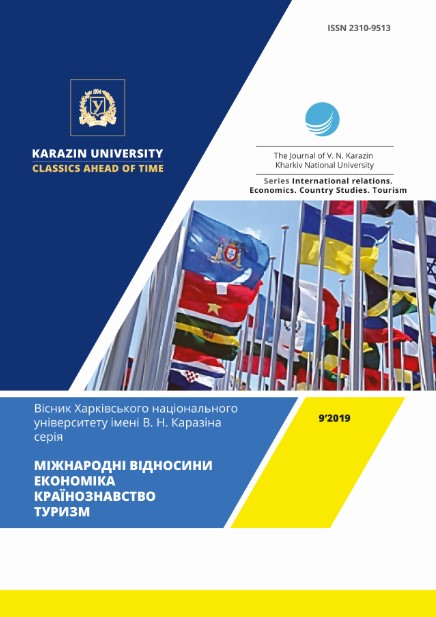Institutional transformations of the global financial system in technological revolution’s terms
Abstract
Humankind stands on the top of technological revolution, which is changing the entire global financial system fundamentally. Financial sector implements new financial technologies (alternative payment systems and lending systems, chat bots, BigData, quantum computing and algorithmic trading, Cryptography, blockade, artificial intelligence, etc.),that respond quickly to changes in market conditions. These financial technologies independently analyze the whole range of information necessary for the investor and make investment decisions, excluding human emotions and fallacy. As a result of the implementation fintech, profitability of the financial business increases, structure of the financial system becomes more difficult, and unidentified relations and interdependencies begin to operate and create a potentially unstable environment with a high level of uncertainty. The purpose of the article: to determine features institutional transformations of the global financial system in the terms of fourth technological revolution. Conclusions.In the conditions of the technological revolution, institutional transformations of the global financial system are just beginning. However, it is already clear today, that under the influence of Fintech, institutional structure of the global financial system will change radically. Financial innovations increase complexity of the financial system and become a source of its vulnerability. Under these conditions, habitual practices cease to operate, instruments of regulation and forecasting, spontaneity of factors increase, which may cause a new crisis. Therefore, participants in the financial system need to institutionalize new financial technologies effectively. Government institutions and businesses should encourage change, create new alternatives within the existing financial system, rather than to protect the elements of the old system.
Downloads
References
Abadi, J., & Brunnermeier, M. Blockchain. Economics. Retrieved from https://scholar.princeton.edu/sites/default/files/markus/blockchain.pdf
Bloomberg. (n.d.). Bloomberg. Retrieved from https://www.bloomberg.com
CoinDesk. (n.d.). Coin Desk. Retrieved from https://www.coindesk.com/price/bitcoin
Dong, He. (2018, June). Monetary Policy in the Digital Age. Finance & Development, 2, Vol. 55. Retrieved from http://www.imf.org/external/pubs/ft/fandd/2018/06/central-bank-monetary-policy-and-cryptocurrencies/he.htm
Juniper Research. (n.d.). Research, Forecasting & Consultancy for Digital Technology Markets. Retrieved from https://www.juniperresearch.com/home
Price waterhouse Coopers. (n.d.). Global Fin Tech Report 2017.Retrieved from https://www.pwc.com/jg/en/publications/pwc-global-fintech-report-17.3.17-final.pdf
Schwab, K. (2015, December 12). The Fourth Industrial Revolution. What it means, how to respond. Retrieved from https://www.foreignaffairs.com/articles/2015-12-12/fourth-industrial-revolution
Shiller, R. ( 2015, Jul. 15). The Mirage of the Financial Singularity. Retrieved from https://www.project-syndicate.org/commentary/will-computer-algorithms-replace-humans-in-financial-markets
Shkodina, I., Timoshenkov, I., & Nashchekina, O.(2018). The impact of financial technology on the transformation of the financial system. Financial and credit activity: problems of theory and practice, 24,Vol 1, 417-424.
Sornette, D. (n.d.). Financial Bubbles with Finite-Time Singularity. Retrieved from http://www.hpcfinance.eu/sites/www.hpcfinance.eu/files/_Didier_Sornette.pdf
The real investment advice. (2018, Feb. 27). The End Of Bear Markets.Retrieved fromhttps://realinvestmentadvice.com/the-end-of-bear-markets/
The Wharton School. (2017, Nov. 7). Why AIIs the «New Electricity». Retrieved fromhttp://knowledge.wharton.upenn.edu/article/ai-new-electricity/
Authors who publish with this journal agree to the following terms:
- Authors retain copyright and grant the journal right of first publication of this work under the terms of a license Creative Commons Attribution License 4.0 International (CC BY 4.0).
- Authors are able to enter into separate, additional contractual arrangements for the non-exclusive distribution of the journal's published version of the work (e.g., post it to an institutional repository or publish it in a book), with an acknowledgement of its initial publication in this journal.
- Authors are permitted and encouraged to post their work online (e.g., in institutional repositories or on their website) prior to and during the submission process, as it can lead to productive exchanges, as well as earlier and greater citation of published work.




